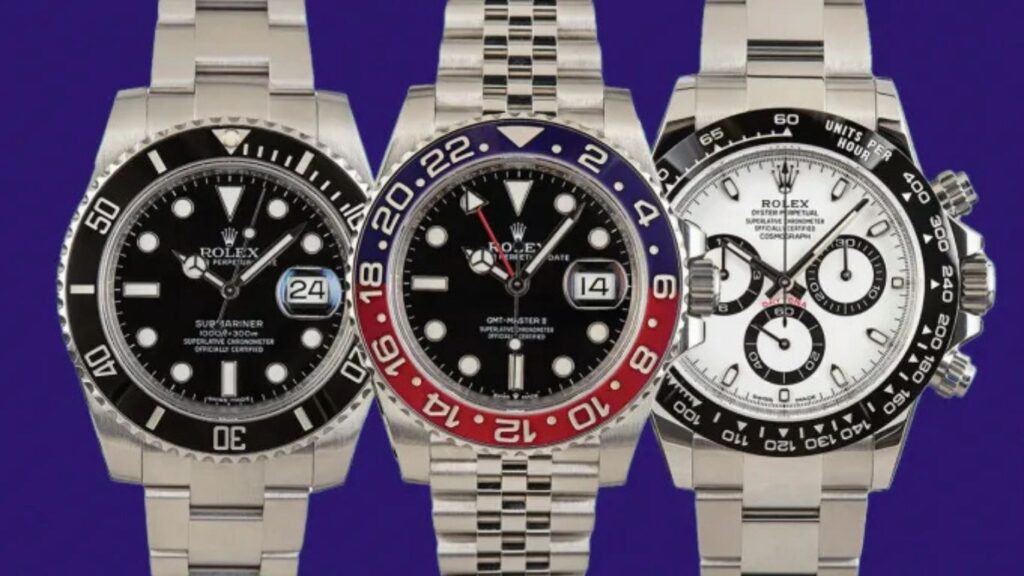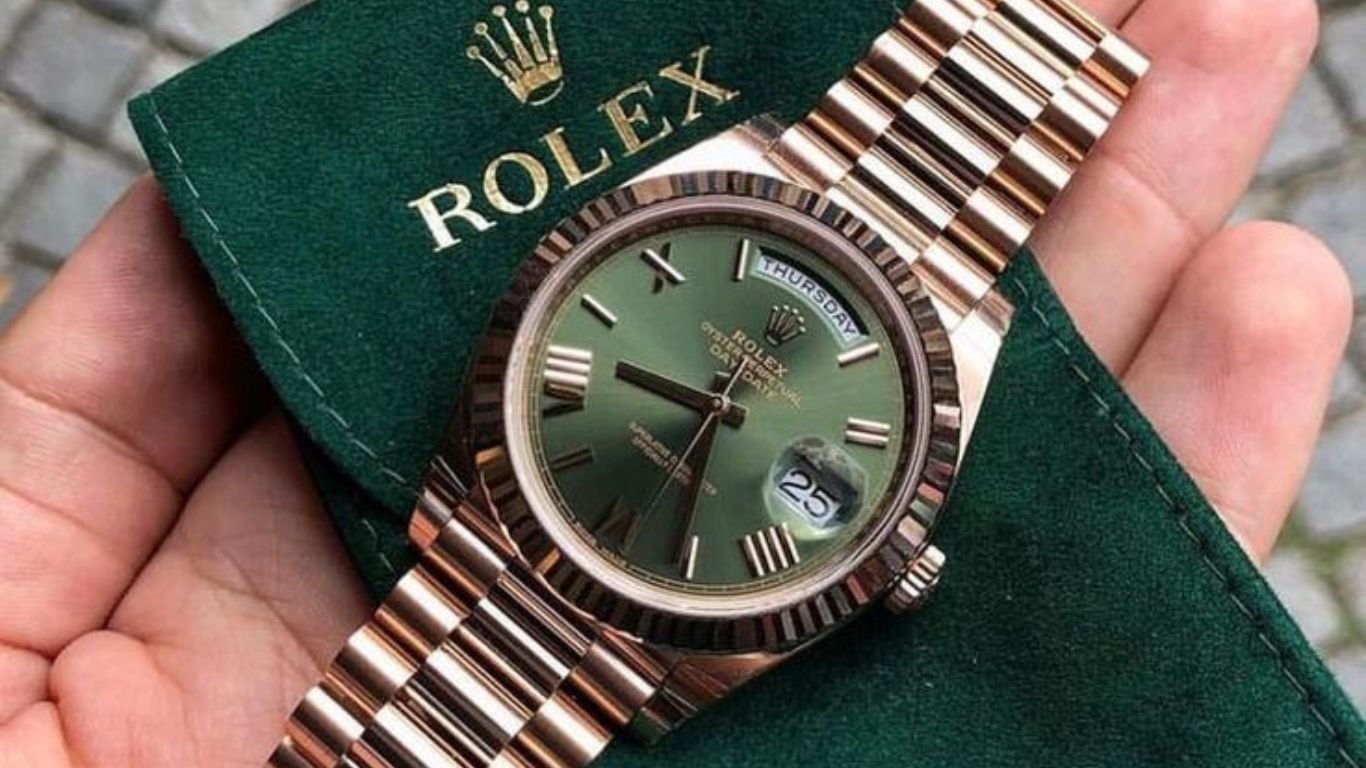What is a No. 1 Watch?
The term “No. 1 watch” evokes thoughts of luxury, precision, and distinction in the world of timepieces. But what truly makes a “No. 1” watch stand out? This article will dive into what these watches represent, the qualities that define them, and why they continue to captivate watch enthusiasts, collectors, and even investors.
What Does “No. 1 Watch” Mean?
In the luxury watch world, the title “No. 1” is often synonymous with the best in the industry. A No. 1 watch is not just a timekeeping device; it’s a work of art, a status symbol, and a testament to the expertise of the craftsman behind it. These watches are rare, often hand-crafted, and come from brands with a rich heritage in watchmaking.
No. 1 watches are produced by the most prestigious watchmakers, including Rolex, Patek Philippe, and Audemars Piguet. These brands have set the gold standard in horology and continue to produce some of the finest timepieces available today.
Why Are No. 1 Watches So Special?
Masterful Craftsmanship
No. 1 watches are often crafted with a level of precision and skill that’s unmatched in the industry. Every part of the watch, from the movement to the hands, is meticulously designed and assembled. Watchmakers dedicate months—sometimes even years—to ensuring that every detail is flawless. This exceptional craftsmanship is what sets these watches apart from the rest.
Exclusivity and Rarity
Exclusivity is one of the main reasons No. 1 watches are so sought after. These watches are not mass-produced; in fact, many are limited edition models, making them rare and unique. The more exclusive the watch, the more valuable it becomes. The rarity of these timepieces contributes to their allure and justifies their often hefty price tags.
Use of Premium Materials
No. 1 watches are made from some of the finest materials available. Luxury metals such as 18k gold, platinum, and high-grade stainless steel are common in their construction. In addition, elements like titanium, ceramic, and diamonds are often incorporated to elevate both the aesthetic and durability of these watches.
Which Brands Are Known for No. 1 Watches?
Several high-end watch brands are synonymous with No. 1 watches, known for their rich history, innovation, and attention to detail.

Rolex: The Epitome of Luxury
When most people think of a No. 1 watch, Rolex is the first name that comes to mind. The brand has long been associated with precision, durability, and timeless elegance. Iconic models such as the Rolex Submariner and Daytona are coveted for their craftsmanship and status as symbols of achievement.
Patek Philippe: Masterpieces in Time
Another powerhouse in the world of luxury watches is Patek Philippe. Known for producing timepieces that embody both tradition and innovation, Patek Philippe is famous for its Grand Complications and perpetual calendars. Their watches are not just functional but also highly collectible, with some models fetching millions at auction.
Audemars Piguet: Innovators of Watch Design
Audemars Piguet made a name for itself with the Royal Oak, a watch that challenged traditional designs when it was first released in the 1970s. The brand continues to be a leader in watchmaking, combining cutting-edge technology with exquisite artistry. The Royal Oak Offshore is one of its most well-known and sought-after models.
Why Are No. 1 Watches So Expensive?
No. 1 watches come with a premium price tag, and for good reason. Here are the factors that contribute to their high cost:
Limited Production and Exclusivity
One of the biggest reasons No. 1 watches are so expensive is their rarity. Many luxury timepieces are produced in small quantities, making them exclusive. Limited edition models, for example, can become highly sought-after collector’s items, pushing their prices up significantly.
Expert Craftsmanship and Time Investment
Creating a No. 1 watch is no easy task. Watchmakers spend months (sometimes years) perfecting the watch’s design and functionality. The complexity of these timepieces and the precision required to assemble them justify their high costs.
Prestigious Brand Names
The reputation of the brand behind a No. 1 watch adds another layer of value. Luxury watchmakers have spent decades—or even centuries—building their names and ensuring their products are of the highest quality. The prestige associated with brands like Rolex and Patek Philippe is woven into the price of their timepieces.
Are No. 1 Watches a Good Investment?
No. 1 watches are often viewed as more than just luxury accessories—they are considered investments. Due to their rarity, craftsmanship, and historical significance, many of these timepieces appreciate in value over time. As such, collectors and investors often see purchasing these watches as a way to preserve and grow wealth.
How Do No. 1 Watches Appreciate?
Limited edition models or rare designs from prestigious brands tend to appreciate significantly in value over time. For example, a Rolex Daytona or a Patek Philippe Nautilus purchased today could be worth considerably more in a few years, especially if the model is discontinued or becomes increasingly rare.
Choosing the Right No. 1 Watch
If you are in the market for a No. 1 watch, it’s essential to know what to look for. Here are some tips for choosing the perfect timepiece:
Consider Your Style
No. 1 watches come in various designs, from traditional and formal to bold and modern. Consider what fits your personality and lifestyle. Do you prefer a classic look, or are you drawn to more contemporary designs?
Think About Functionality
Many high-end watches come with advanced complications like moon phases, tourbillons, or perpetual calendars. These features are not only functional but also add a unique dimension to the watch. If you’re interested in a specific complication, make sure the watch you choose offers it.
Authenticity and Provenance
Ensure that the No. 1 watch you purchase is authentic. Always buy from authorized retailers or auction houses that specialize in luxury watches. Be sure to get all relevant documentation, including certificates of authenticity and warranty cards.
Caring for Your No. 1 Watch
To maintain the value and appearance of your No. 1 watch, regular care and servicing are essential.
Cleaning and Maintenance
Regular cleaning is important to keep your watch looking its best. For metal watches, a soft cloth can be used to wipe away dirt and oils. If your watch has a leather band, clean it with a leather cleaner to avoid damage.
Servicing Your Watch
No. 1 watches require periodic servicing to keep the internal movement in top condition. Servicing ensures the accuracy and longevity of the timepiece. Most luxury watch brands recommend having your watch serviced every 5-10 years, depending on the model.
Storage and Protection
When you’re not wearing your watch, store it in a safe, dry place. A watch box or a protective case is ideal for keeping the watch safe from scratches, dust, or environmental damage.
No. 1 Watches in Pop Culture
Luxury watches are often worn by celebrities, athletes, and influential figures, which helps cement their status as symbols of success. Whether it’s seen on the red carpet or in a major sporting event, No. 1 watches often make an appearance in the spotlight, further elevating their prestige.
Are No. 1 Watches Worth the Investment?
The high cost of a No. 1 watch might make some hesitate, but for many enthusiasts, the value far exceeds the price tag. These watches are not just about telling time—they represent fine craftsmanship, luxury, and timeless elegance. Additionally, many No. 1 watches appreciate in value over time, making them sound investments.
Conclusion: The Allure of No. 1 Watches
No. 1 watches will always be at the pinnacle of luxury and sophistication. They are not just timepieces but cultural symbols of success, achievement, and wealth. Whether you see them as an investment, a collectible, or simply a beautiful piece of craftsmanship, owning one is a privilege that few get to experience. No matter how the watch industry evolves, these timepieces will always stand as the epitome of excellence.
5 Unique FAQs about No. 1 Watches
1. What makes a No. 1 watch different from other luxury watches?
A No. 1 watch is distinguished by its unparalleled craftsmanship, exclusivity, and high-quality materials. It often comes from a renowned brand with a legacy of watchmaking excellence.
2. Can No. 1 watches increase in value over time?
Yes, many No. 1 watches, especially rare and limited-edition models, appreciate in value due to their rarity and the brand’s prestige.
3. How do I know if a No. 1 watch is authentic?
Make sure to buy from authorized dealers and ask for the watch’s original papers, certificates, and serial number to confirm authenticity.
4. Can I wear a No. 1 watch daily?
While No. 1 watches can be worn daily, many are designed for special occasions to preserve their value and avoid wear and tear.
5. Which is the best No. 1 watch to invest in?
Brands like Rolex, Patek Philippe, and Audemars Piguet are always safe bets for investment, especially models like the Rolex Submariner or Patek Philippe Nautilus.
